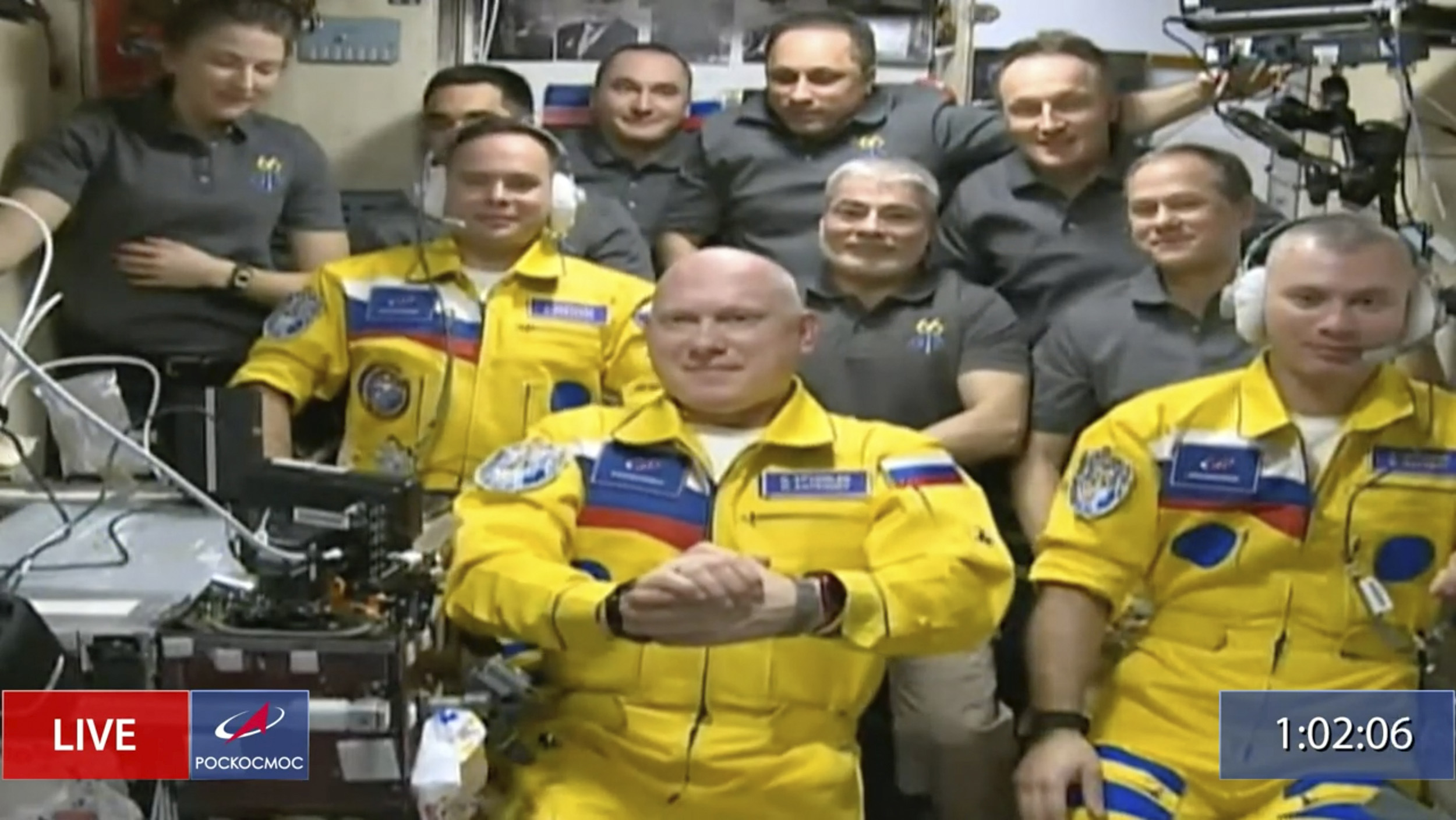

Russia will withdraw from the International Space Station project “after 2024” after fulfilling its obligations, according to the Kremlin readout of a meeting between the newly appointed head of Roscosmos, Yuri Borisov, and Russia’s President Vladimir Putin.
“You know that we are working within the framework of international cooperation at the International Space Station. Undoubtedly, we will fulfil all our obligations to our partners, but the decision to leave the station after 2024 has been made,” Borisov told Putin in the Kremlin-issued readout.
“I think that by this time, we will begin to form the Russian orbital station,” Borisov said.
Russia’s withdrawal would be a major blow to the ISS, a model of international cooperation for decades. The announcement comes as the war in Ukraine has deeply strained its relations with US and Europe.
Robyn Gatens, director of the International Space Station for NASA, said that NASA hadn’t received any official word from Russia about the decision to quit the ISS.
“The Russians, just like us, are thinking ahead to what’s next for them. As we are planning transition after 2030 to commercially operated space stations in low-Earth orbit, they have a similar plan. And so they’re thinking about that transition as well. We haven’t received any official word from the partner as to the news today, so we’ll be talking more about their plan going forward, ” Gatens said.
This is not the first time that Russia has threatened to abandon the ISS amid crippling US and European sanctions over the war in Ukraine. Borisov’s predecessor, Dmitry Rogozin, repeatedly threatened to do so before he was ousted earlier this month.
But this most recent threat has more teeth, and the apparent approval of Putin himself. According to the transcript of a meeting posted to the Kremlin’s website, Putin said “good” after Borisov told him that Roscosmos will begin to build its own space station after 2024.
Russia’s withdrawal would be a major blow to the ISS, a model of international cooperation for decades.
The news comes less than two weeks after NASA and Roscosmos announced a crew-exchange deal or “seat swap” that had been under negotiations for more than four years. Starting in September, two Russian cosmonauts will launch on US spacecrafts from Florida while two American astronauts will ride Russian rockets into space. It’s unclear if Russia’s decision to pull out of the ISS after 2024 will impact the crew-exchange agreement.
The ISS, which is a collaboration among the US, Russia, Japan, Canada and the European Space Agency, is divided into two sections — the Russian Orbital Segment and the US Orbital Segment. The Biden administration announced in December that it was committed to extending the ISS from 2024 to 2030. But Russia — NASA’s number-one partner at the ISS — never signed onto it.
“The Russian segment can’t function without the electricity on the American side, and the American side can’t function without the propulsion systems that are on the Russian side,” former NASA astronaut Garrett Reisman told CNN in February. “So you can’t do an amicable divorce. You can’t do a conscious uncoupling.”
Since then, NASA has been exploring ways of moving the space station without the assistance of the Russian segment. In June, a Cygnus cargo spacecraft demonstrated its ability to raise the station’s orbit. But whether the ISS would be able to survive without the Russians is still an open question.
NASA said in February it intends to keep operating the International Space Station — which was launched in 2000 — until the end of 2030, after which the ISS would be deorbited and crashed into a remote part of the Pacific Ocean. Commercially operated space platforms would replace the ISS as a venue for collaboration and scientific research, NASA said.
Hear the director general of the European Space Agency here:

التعليقات